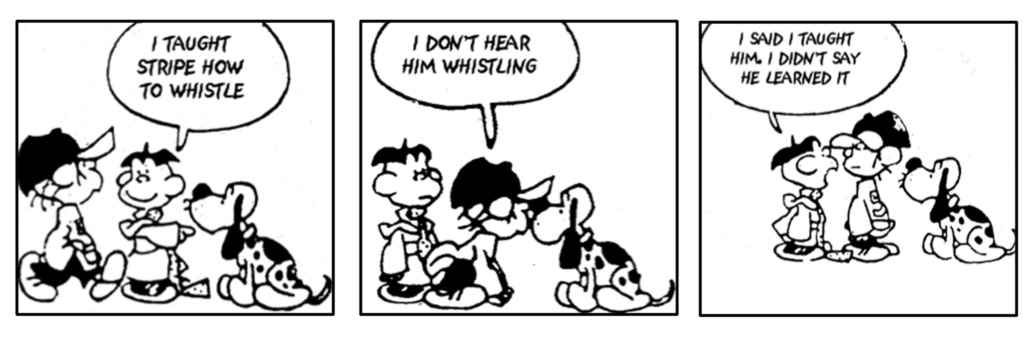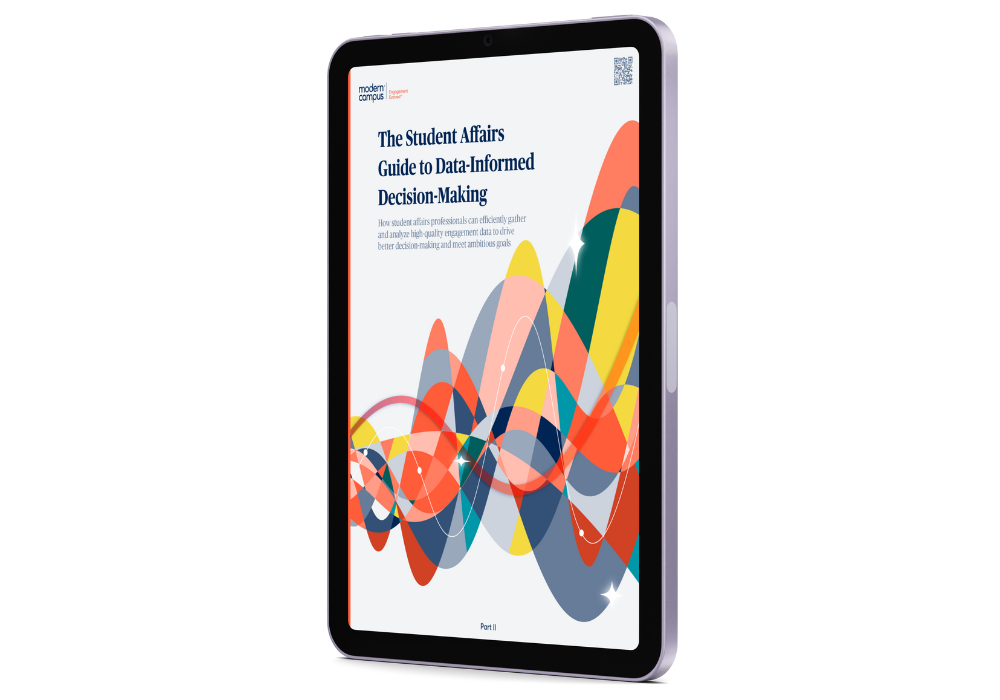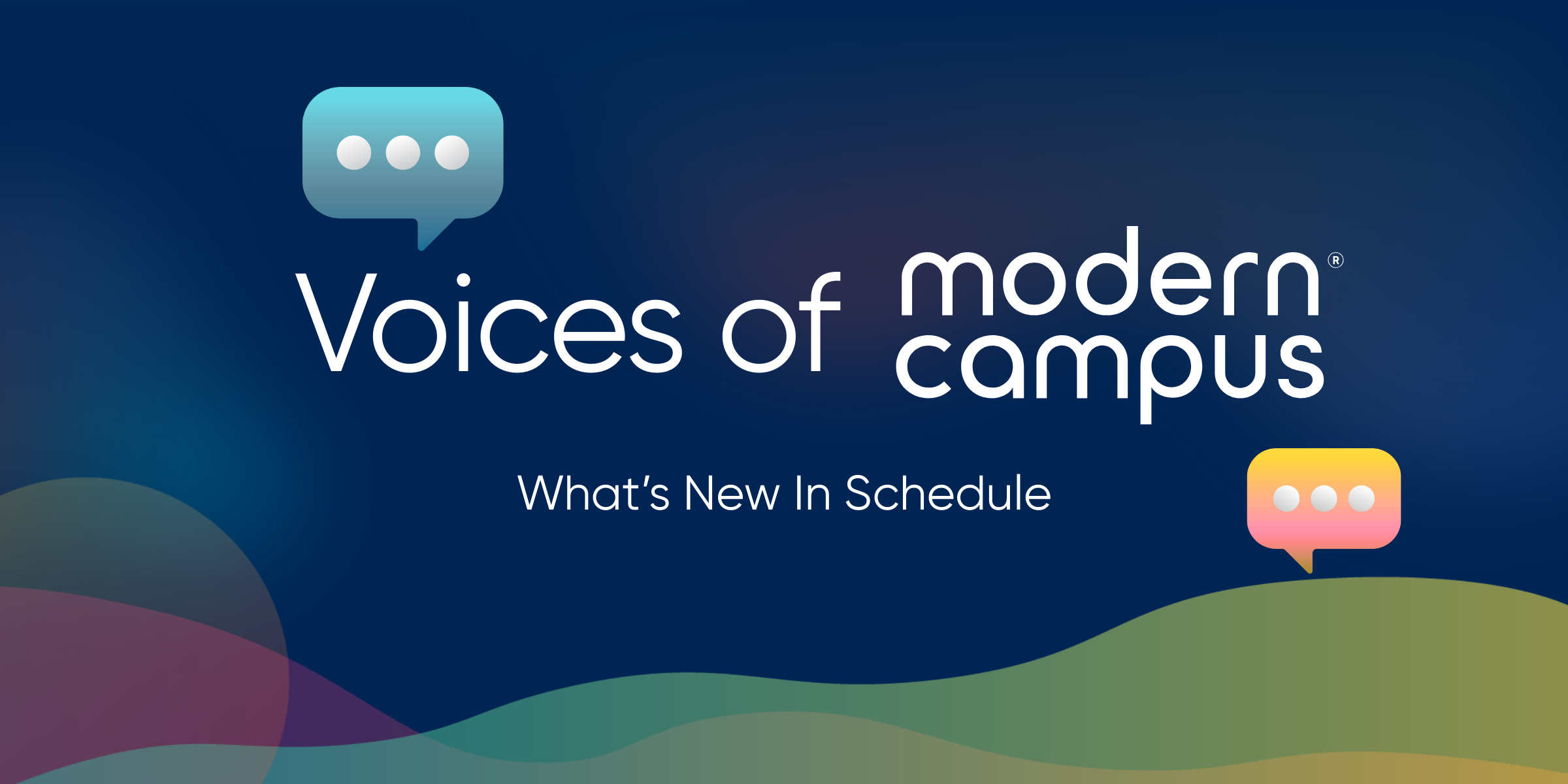8 Top Tips on Co-curricular Assessment Within Student Affairs
Many student affairs professionals have a love-hate relationship with assessment.
In theory, they know that it’s important to undertake assessment projects in order to continually improve their work, support their students and meet the strategic goals of their college or university. Yet, they’re intimidated by the careful work assessment requires, and they want to get it right.
We understand the hesitation but know the rewards are crucial to the continued success of student affairs.
So, we recently teamed up with Dr. Joseph D. Levy to host a webinar that helped student affairs professionals (and collaborative partners) reacquaint themselves with assessment through a co-curricular lens.
Dr. Levy is the Executive Director of Assessment and Accreditation at National Louis University, a member of the Student Affairs Assessment Leaders (SAAL) Board of Directors, co-creator and instructor for the Applying and Leading Assessment in Student Affairs open course, and endorsed speaker for the National Institute of Learning Outcomes Assessment (NILOA).
In other words, he knows assessment pretty darn well.
Here are eight of the top takeaways from the webinar, Defining Student Affairs Assessment: An Intro to Applying & Leading Assessment.
1. Just because you taught a student something, it doesn't mean they learned it.

Cartoon from the comic strip Tiger by Bud Blake
As the above cartoon illustrates, you shouldn’t assume that students learned something just because that was the goal of your co-curricular program. Saying that “students will learn X, Y and Z” is merely a hypothesis; assessment is how you test and prove it.
“We can have all the intentions in the world, all the best practice guiding us, informing us, and we can put together amazing resources,” Dr. Levy says. “We can even have students coming to our programs, to our events, sitting in our courses. And we can do our thing, and we can think we did great. And that can be our perception and our intent. But we have to check the reality. We have to make sure that the outputs or the reality of that intervention and what happened for the student is anywhere near to what we intended. That's assessment.”
2. Assessment should lead to change.
“Assessment should be impactful,” Dr. Levy says. “If you go through the process of assessment and at the end of it go ‘yup, everything's fine, I have nothing to do here,’ you did it wrong.”
Proper assessment requires significant time and effort, but the impacts—the decisions you make and changes you implement as a result of your acquired data—will make it worthwhile.
“We have to position assessment as part of the work and not this separate thing that we're doing because somebody told us to, or because our accreditor got upset with us and, and said we need to do this,” Dr. Levy says.
3. Assessment should be meaningful and actionable.
Dr. Levy loves when people embrace assessment, but he cautions against going overboard. Developing an assessment plan that will provide you with meaningful, worthwhile data requires understanding the resources you have at your disposal.
“Sometimes people who are energetic and excited and enthusiastic about assessment can bite off more than they can chew,” he says. “They can say ‘we have 20 student learning outcomes, we're gonna assess all of them.’”
Dr. Levy thinks such high ambitions can be detrimental to your goals.
“Good assessment practice says that you should measure a given outcome multiple ways at multiple points in the student's experience. So if you're doing that for 20 outcomes, you're gonna need an army of people to be helping you report on that and track and make meaning of it. That's gonna be a lot of information to get your arms around.”
4. Assessing learning outside of the classroom is not so different from assessing learning inside of it.
Dr. Levy believes that student affairs professionals can learn a lot about assessment from their colleagues in academic affairs—and vice versa.
“Student affairs co-curricular assessment fundamentally is no different than academic affairs,” Dr. Levy says. “We're, we're setting learning outcomes. We're setting a plan, an intentional plan for measurement. We are setting targets so we know what we hope to see, what we expect for the student learning. We're reporting on that, we're interpreting it and we're taking action that is happening for academics and for student affairs and co-curricular areas. It just looks a little different for both. But fundamentally they're going through the same cycle, going through the same steps.”
5. Always test your collection method.
Dr. Levy has seen many assessment projects go to waste or fail to launch. Often, the chosen collection method—or execution of it—is to blame.
To avoid all that wasted effort, Dr. Levy recommends first testing your method with a small subset of students.
“There's nothing worse than launching a method and hoping you're gonna get such-and-such data and just setting it and forgetting it,” Dr. Levy says. “So then at the end of the year, you look at it and realize this isn't at all what we hoped it would be.
6. Don’t bother assessing something if its results won’t be relevant to your work.
Dr. Levy has seen many professionals plan to assess something just because it seems like a clever idea.
He disagrees with this approach. You should care deeply about all the questions you plan to answer through assessment. Otherwise, it’s not worth your—and your students’—time.
“One of the last things I look to do is go point by point, question by question, element by element to say, ‘what are you gonna do with this data? What question is this answering for you? How are you gonna report on this?’ It’s a really good weed out the need-to-know information from the nice-to-know,” Dr. Levy says. “Data collection is already tough enough, challenging enough, and we're already having enough survey fatigue and people dropping out of surveys because they're too long or not wanting to participate in something.”
7. Good reporting is more than data sharing.
If you want your colleagues to care about a report or for institutional decision-makers to care about your planned changes, you need to make your reports dynamic.
“It's not just a spreadsheet, it's not just the results,” Dr. Levy says. “Tell the full story, talk about your process, talk about what you were measuring, why you picked your method, talk about how you analyzed it, how you interpreted it, who was involved in interpreting it. Was it just you in a room? Was it just your department? Did you have any students weighing in to add some additional perspective beyond what the data is showing? And then, also, are you talking about your intended actions?”
8. Cater your written reports to the readers.
“You shouldn't be filling out a report and not knowing where it's going. Because when you are, when you know those things, then you can best make that report for that audience,” Dr. Levy says.
He also recommends making multiple versions of each report.
“One should be the full story and the ideal if you were sharing it with another assessment colleague,” Dr. Levy says, “But then you need executive summaries and simplified versions for people who aren't in your area and don't care about all the details but only care about what resonates with them.”
The full webinar recording is available here—free!
The Student Affairs Guide to Data-Informed Decision-Making
How student affairs professionals can efficiently gather & analyze high-quality engagement data to drive better decision-making and meet ambitious goals

Last updated: February 23, 2023




